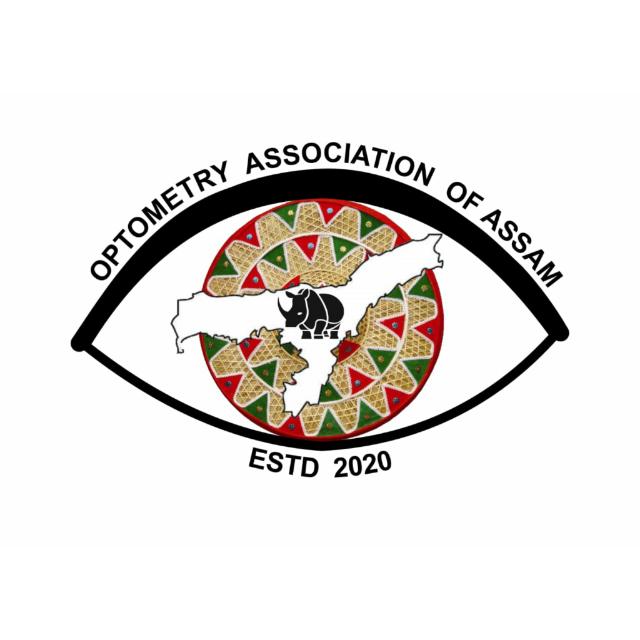👁️🗨️ Optometry
Frontline Medical Eye Care Profession. Recognized. Regulated. Responsible.
🧿 What is Optometry?
Optometry is a dynamic and autonomous healthcare profession dedicated to the examination, diagnosis, treatment and management of disorders related to the eye, vision, and visual system.
Optometrists serve as independent, first-contact clinical professionals, equipped to provide both medical and optical care. They play a critical role in early detection of sight-threatening diseases, monitoring ocular health, and managing a wide range of non-surgical eye conditions.
In Assam, bridging the gap between communities and advanced ophthalmic services, optometrists are essential in preventing avoidable blindness, also recognizing systemic health issues through the eyes, and delivering accessible, frontline eye care across both urban and underserved rural areas.
👨⚕️ Who is a Qualified Optometrist?
- Successfully completed a Bachelor of Optometry (B.Optom) — a minimum four-year (now five-year with internship) full-time program from a UGC-recognized university
- Undergone one full year of hands-on clinical internship at a tertiary-level eye care center, gaining extensive experience in patient examination, diagnosis, and medical management
Trained in both theory and advanced clinical skills, optometrists are independent frontline practitioners equipped to diagnose, treat, optically and medically manage a wide range of visual and ocular conditions — contributing significantly to Assam’s primary eye care network.
🩺 Scope of Practice
Optometrists in Assam are recognized and trained to perform the following medical and clinical tasks:
🔹 Clinical Examination & Diagnosis
- Visual acuity testing (distance, near, and color vision)
- Slit lamp examination of the anterior segment
- Visual field testing (confrontation and perimetry)
- Fundus examination using direct/indirect ophthalmoscope
- All Diagnostic Tests To Determine:
- Refractive errors
- Cataract
- Glaucoma (screening and monitoring)
- Diabetic retinopathy
- Corneal ulcer or opacity
- Strabismus (squint)
- Amblyopia
- Uveitis
- ARMD
- Optic nerve disorders
👓 Optical Management and Functional Care
- Prescription of spectacles, contact lenses, and low vision aids
- Prescription of prism lenses for strabismus and binocular issues
- Provide binocular vision therapy and rehabilitation for amblyopia, convergence insufficiency, and related conditions
- Management of occupational and pediatric vision problems
- Treatment of functional visual issues like eye strain, reading difficulty, and accommodative stress
💊 Medical Management
Optometrists are trained to prescribe and administer:
- Antibiotic Drops
- Antihistamines, Antiallergics
- Painkillers (NSAIDS)
- Vitamins and Mineral supplements
- Miotics
- Lubricants
- Mydriatics and cycloplegics for diagnostic and therapeutic use
They also offer medical management for:
- Conjunctivitis
- Trachoma
- Eye Allergies
- Dry Eye
- Eyelid Problems (like Blepharitis, Styes, Chalazion etc)
- Lacrimal System Disorder
- Vitamin A deficiency etc
🛠️ Other Minor Procedures
- Superficial foreign body removal (cornea, conjunctiva etc)
- Epilation in cases of trichiasis
- Lacrimal syringing
- Enucleation of eyeball for corneal transplantation
🔄 Referral & Co-management
- Refer surgical or advanced pathological cases to ophthalmologists
- Identify systemic conditions (e.g. diabetes, hypertension) through ocular signs and refer to appropriate specialists
- Co-manage post-operative cases with ophthalmologists
- Coordinate with other health professionals and the public health system
🧠 Why Optometrists Matter in Assam’s Healthcare System
- Relieve overburdened hospitals by managing and treating 80–90% of eyecare cases
- Prevent avoidable blindness through early detection
- Offer timely, affordable, and accessible care even in rural and under-developed regions
- Promote ocular health literacy through screenings and awareness
Their ability to independently diagnose, treat, and refer ensures quality care at every level.
🔍 Recognition under NCAHP Act, 2021
Under the National Commission for Allied and Healthcare Professions Act, 2021, Optometry is officially listed and recognised as a healthcare profession and classified under ISCO CODE 2267, aligning Optometry in India with international standards.
The task statement of Optometrists as per ISCO Code 2267 includes:
- Examining patients’ eyes and setting tests to determine the nature and extent of vision problems and abnormalities
- Assessing ocular health and visual function using various specialized tests
- Detecting, diagnosing and managing eye disease, and prescribing medications
- Consulting with and referring patients to ophthalmologists or other health care practitioners when needed
- Diagnosing eye movement disorders and defects of binocular function
- Prescribing lenses, contact lenses and low vision aids
- Prescribing exercises for visual coordination and function
- Managing programs for eye movement disorders, and providing counseling for corrective techniques
- Advising on visual health: contact lens care, visual ergonomics, safety, and public awareness
This recognition firmly establishes optometrists as independent, regulated healthcare professionals.
⚠️ Public Awareness: Choose Only Qualified Professionals
Beware of:
- Individuals holding diplomas in Vision Technician/Ophthalmic Techniques or short-term certificate courses in opticianry who falsely claim to be optometrists and conduct unauthorized eye testing in Assam
- Optical shops operating without a registered optometrist, yet offering medical or diagnostic eye care
Consult only:
- University-qualified optometrists with a full-time Bachelor of Optometry degree (B.Optom)
- Registered members of the Optometry Association of Assam, verified for ethical and clinical competence
Optometrists are not anyone’s assistants. They are your primary independent medical eye care professionals — extensively trained, nationally recognized, and clinically accountable.
